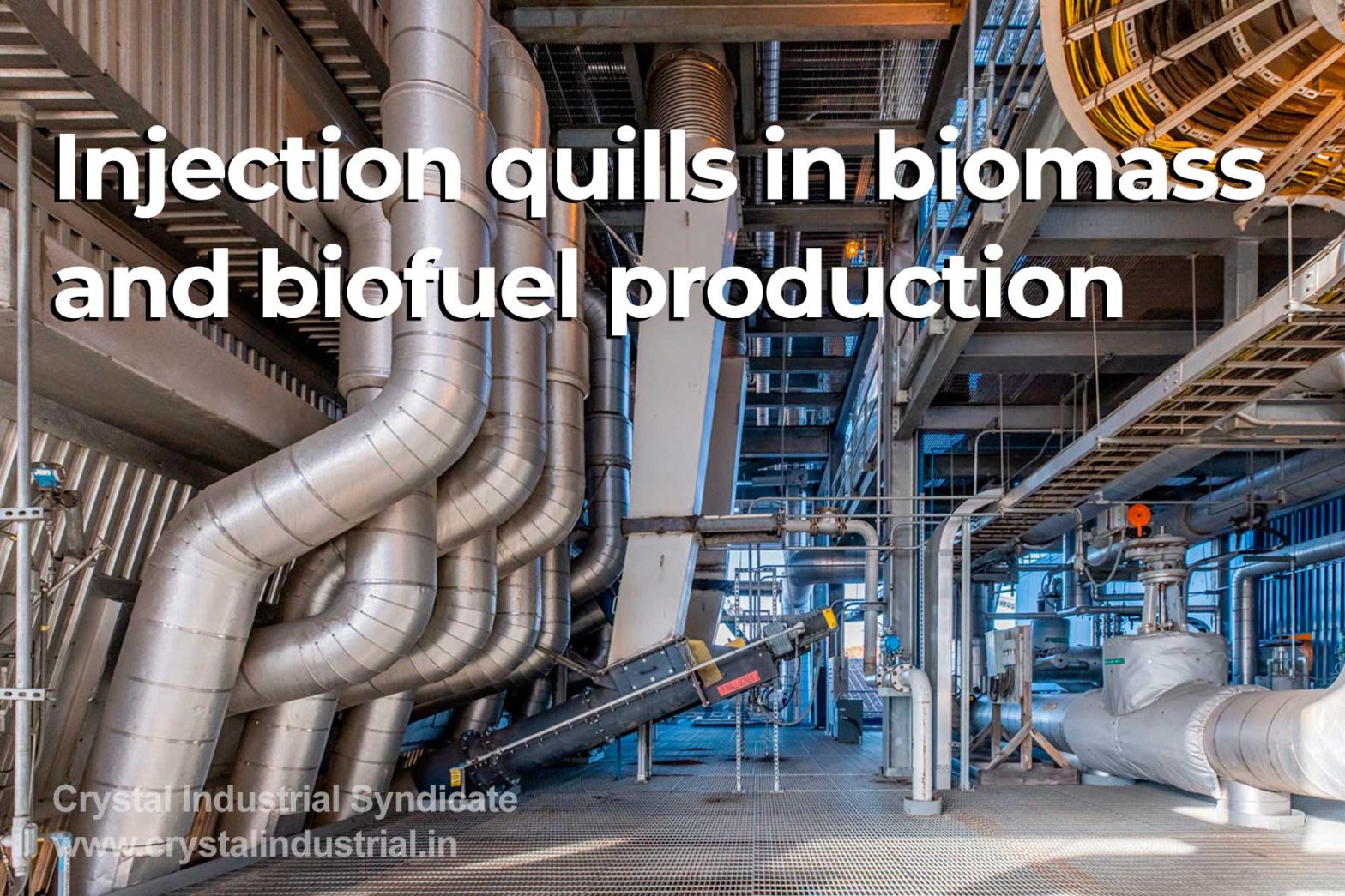Injection quills have played an important role in the development of the biomass and biofuel industry, providing precise chemical application in the various stages of production. However, as the industry continues to evolve, new technologies and materials are emerging that are set to revolutionize the way injection quills are used in this field.
One of the most significant advancements in the future of injection quills in biomass and biofuel production is the use of advanced materials. Currently, most injection quills are made of stainless steel, which is durable and corrosion-resistant but can be expensive. In the future, new materials such as ceramics, composites, and even 3D printed materials may be used to create injection quills that are more cost-effective and have improved corrosion resistance. Additionally, the use of advanced coatings, such as anti-fouling and anti-corrosion coatings, can improve the lifespan of the quills.
Another important area of development for injection quills in biomass and biofuel production is automation and robotics. As the industry becomes more advanced, there is an increased need for automation to improve efficiency and reduce labor costs. Automated injection quill systems can be programmed to accurately dose chemicals at specific intervals, reducing the need for manual intervention. This can improve the accuracy of chemical application and also increase safety for workers.
Smart technology and sensors are also becoming more prevalent in injection quills in biomass and biofuel production. These technologies can be used to monitor the flow rate, temperature, and pressure of the chemical being injected, allowing for real-time adjustments to be made to the system. Additionally, sensors can be used to detect leaks, corrosion, and other issues, providing early warning signs for maintenance and repairs.
Another area of development for injection quills in biomass and biofuel production is in the field of data analytics and machine learning. With the use of advanced sensors and monitoring equipment, a large amount of data can be collected on the chemical injection process. This data can be analyzed using machine learning algorithms, providing insights into the performance of the system, and enabling the optimization of chemical application.
Finally, the future of injection quills in biomass and biofuel production will see an increased focus on environmental considerations. As the industry continues to grow, there is an increasing need to minimize the environmental impact of the chemical injection process. This may include the use of eco-friendly chemicals, closed-loop systems, and other technologies that reduce the amount of chemical waste produced.
In conclusion, the future of injection quills in biomass and biofuel production is very promising. With the use of advanced materials, automation, smart technology, data analytics, and environmental considerations, the industry is set to achieve even greater levels of efficiency, safety, and sustainability. These advancements will help to reduce costs and minimize the environmental impact of chemical injection, making it an even more attractive option for biofuel production.
Crystal Industrial Syndicate from India, makes a range of custom injection quills for a variety of industrial processes. Our injection quills are manufactured in India and comply with the world’s most stringent certifications. Our products are installed around the world, from North America and Europe to Africa and the Middle East. Contact us to know more about how we can support your injection quills requirements. Contact us
Copyright © 2023 by Crystal Industrial Syndicate Pvt Ltd. All rights reserved. www.crystalindustrial.in
